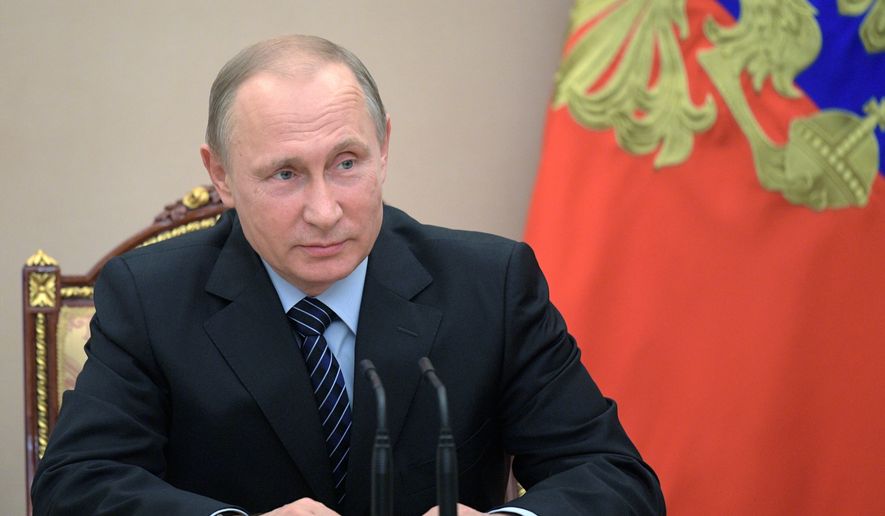The spate of ongoing investigations into allegations of ties between Russia and the Trump White House could create enough political pressure within the international community to “crack” the NATO alliance, a former top U.S. official said Sunday.
Allegations of Russian collusion have dogged the Trump administration since the unlikely presidential candidate won the White House last November. Ongoing congressional investigations, Department of Justice inquiries and the naming of former FBI Director Robert Muller as a special investigator into Mr. Trump’s Russia ties have fomented doubt among U.S. allies.
That doubt has created an opening for Russia to chip away at NATO’s global dominance and reassert Moscow’s influence in places like eastern Europe, the Mideast and elsewhere, said former U.S. Ambassador to NATO Doug Lute.
“I suspect [Russia] sees an opportunity to do what military force alone could never do, and that is crack the NATO alliance.” Mr. Lute said during an interview on ABC’s “This Week.”
Russian President Vladimir Putin “can crack it politically or if he can provoke internal fissures inside the alliance, then Putin sees enormous opportunity to achieve a long-standing Russian goal,” Mr. Lute added.
The Trump administration itself has introduced stresses on NATO.
Throughout the presidential campaign, then-candidate Trump repeatedly called for an overhaul of the NATO alliance and publicly questioned the relevance of the Cold War-era organization in the post 9/11 world. As president, Mr. Trump continued to harangue alliance members for not investing the required 2 percent of gross domestic product for NATO’s cooperative defense.
During a trip to alliance headquarters earlier this year, Mr. Trump refused to publicly support Article 5 of the NATO charter, which states an attack on one alliance member is an attack on the entire alliance.
While national security officials in the White House claim the effort was a ploy to get NATO members to commit to the 2 percent requirement, the move may have also isolated the Trump White House from some of its key European allies.
NATO members, will “undoubtedly recommit to the commitments they made back in the Obama administration to increase defense spending. This is where the president is correct,” Mr. Lute said.
“But they will also begin to hedge their bets. Because they can’t rely, they believe they can’t rely on U.S. leadership as they have for the past 70 years … which has been the backbone of recovery from World War II all the way seeing us all the way through the Cold War period,” he added.
• Carlo Muñoz can be reached at cmunoz@washingtontimes.com.




Please read our comment policy before commenting.